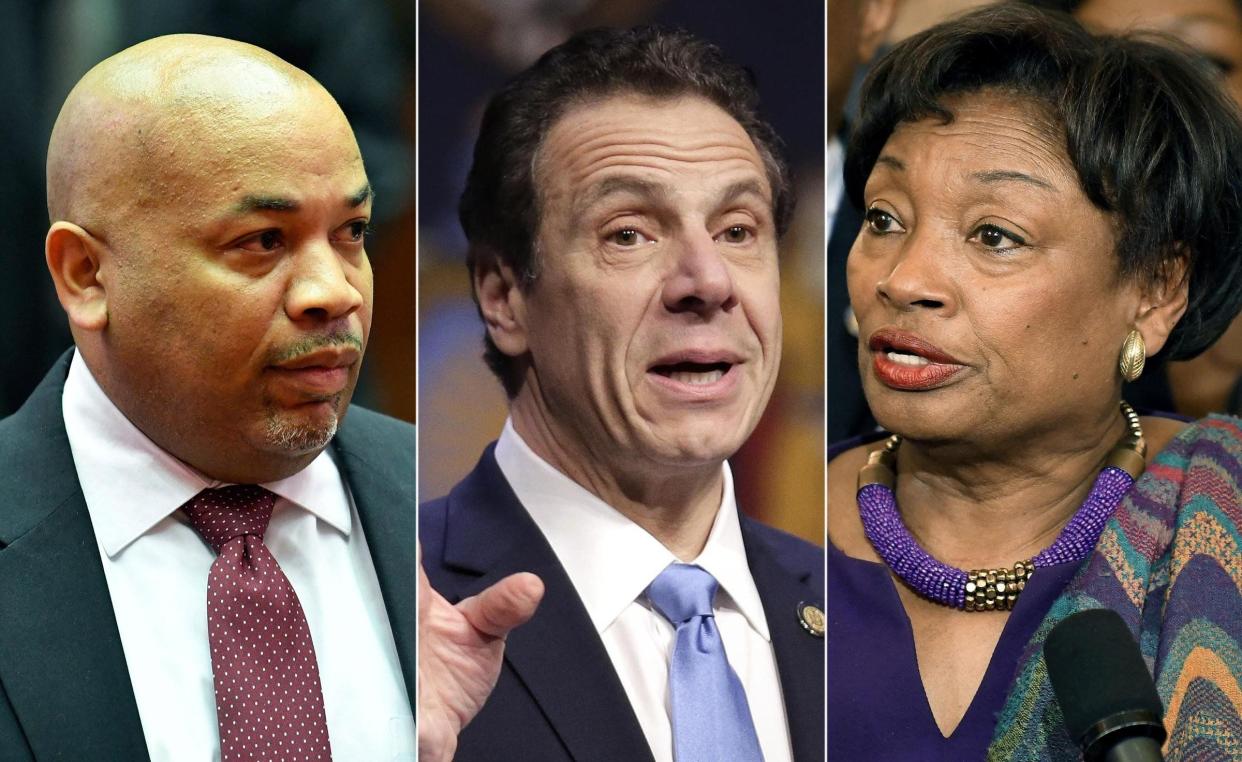Wealth taxes? Mobile sports betting? A look at what’s going on with New York’s budget
ALBANY — Economic recovery from the COVID crisis, swirling scandals, federal aid and a host of contentious proposals to raise taxes on the wealthy and fund excluded workers are complicating budget negotiations as the state’s fiscal year draws to a close this week.
Legislative staffers and the Cuomo administration are currently knee-deep in negotiations, attempting to find common ground on a number of big-ticket proposals as part of a roughly $200 billion budget with the state seeking a path forward in the wake of a deadly pandemic, sources said.

Talks ahead of the April 1 fiscal deadline have been overshadowed as Gov. Cuomo faces a growing number of sexual harassment claims, an impeachment inquiry, calls for his resignation and a federal probe into allegations officials masked the true death toll at nursing homes during the COVID crisis.
The state’s economic future post-coronavirus hangs in the balance as lawmakers attempt to assert more control over the state’s fiscal planning and Cuomo’s political future remains uncertain.
Assembly Speaker Carl Heastie (D-Bronx), who recently contracted coronavirus, approved an impeachment investigation into the governor while Senate Majority Leader Andrea Stewart-Cousins (D-Yonkers) has called on Cuomo to resign.
Complicating matters further is a more than $12 billion infusion of federal COVID relief funds and discrepancies over a number of issues including whether to increase taxes on the state’s wealthiest residents in order to boost spending on education and health care, funding for immigrants and other workers excluded from COVID relief and how to implement a mobile sports betting program.
In his budget proposal released in January, Cuomo for the first time embraced the idea of allowing New Yorkers to wager on sports via smartphones or other devices.
The governor backs a state-run system that would operate similar to the lottery and the administration believes would maximize revenue for New York’s depleted coffers.
Lawmakers support a system that includes licensing fees for a wider range of operators working out of already established casinos.
The Senate has also proposed lifting a moratorium on downstate full-service casinos, which could fast-track the approval process for gambling centers near the city.
Raising taxes on the state’s wealthiest residents remains one of the most controversial topics as budget bills are drafted and advanced in the coming days. Lawmakers in both the Senate and Assembly have pitched a plethora of tax increases that would raise about $7 billion for new spending on education, health care and social services.
Cuomo has expressed skepticism about broad tax increases, arguing that federal funds have made up much of the current budget gap and the wealthy would simply move to other states.
Tied to the tax increases are discrepancies concerning education, rent relief and Medicaid spending. Cuomo’s initial budget included $600 million in cuts to hospitals and other services that he now says are no longer needed, again thanks to federal stimulus funds.
Advocates, meanwhile, are calling on the governor and Legislative leaders to create a $3.5 billion fund to provide economic relief for immigrant and essential workers who were not eligible for state or federal assistance during the pandemic. Lawmakers included a roughly $2 billion version in their one-house budgets.
As negotiations grind on and the deadline looms closer, only one budget bill was introduced as of Tuesday evening. It remained unclear if Legislative leaders and the governor’s office will be able to overcome their differences by Thursday.
Several sources indicated that there was a real push to get the budget done by the end of the week.
Without a rush order from the governor, known as a “message of necessity,” lawmakers could find themselves working through the Easter weekend in order to complete the process.
Cuomo, who regularly brags about having overseen a record of “timely” budgets, ominously indicated last week that things could get dragged out this year due to coronavirus complications.
“We’re going to try to get it done April 1, but I’m not going to risk public health to get it done,” he said. “But I’m not going to risk public health to get it done April 1. We’ll see where it goes.”
